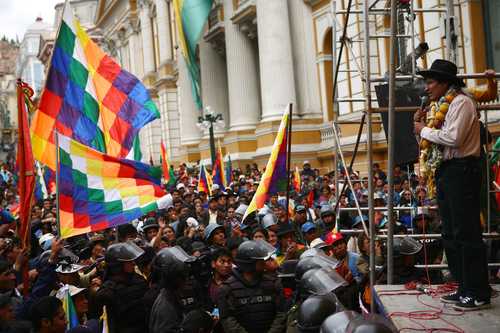 On 6th of December 2009, Bolivia has re-elected as President of the country, Evo Morales Ayma.
On 6th of December 2009, Bolivia has re-elected as President of the country, Evo Morales Ayma.
In Bolivia all people who are legally competent are required to register to vote (at least in the country). This means that everyone of voting age must vote unless he or she is incapacitated for health or legal reasons or is too old.
This is the first time that Bolivia will hold elections under a “biometric” system that checks on registered voters. It will also be the first time Bolivians living outside the country will be able to vote.
In addition, under the new Bolivian Constitution that was approved by His Excellency President Evo Morales Aima, for the first time the electoral system permits re-election and a system of a second term to enable continuity in government plans and programs and assurance of democratic assurance of popular interests.
Nowadays, in 2013, a bill is under way to validate a none-limited number of mandates for any president, as it was done under the government of Hugo Chavez in Venezuela. This bill, however, is very criticized in Bolivia, especially by the opposition, which does not want Evo Morales Ayma indefinitely at the head of government.
Bolivian citizens do not hesitate to assert their rights or to defend their interests, and use different ways to do it, sometimes extreme. Elections are an important moment, whether to elect municipal, regional or national leaders. Bolivian people are mostly politically involved and updated about what happens at the head of their country.


